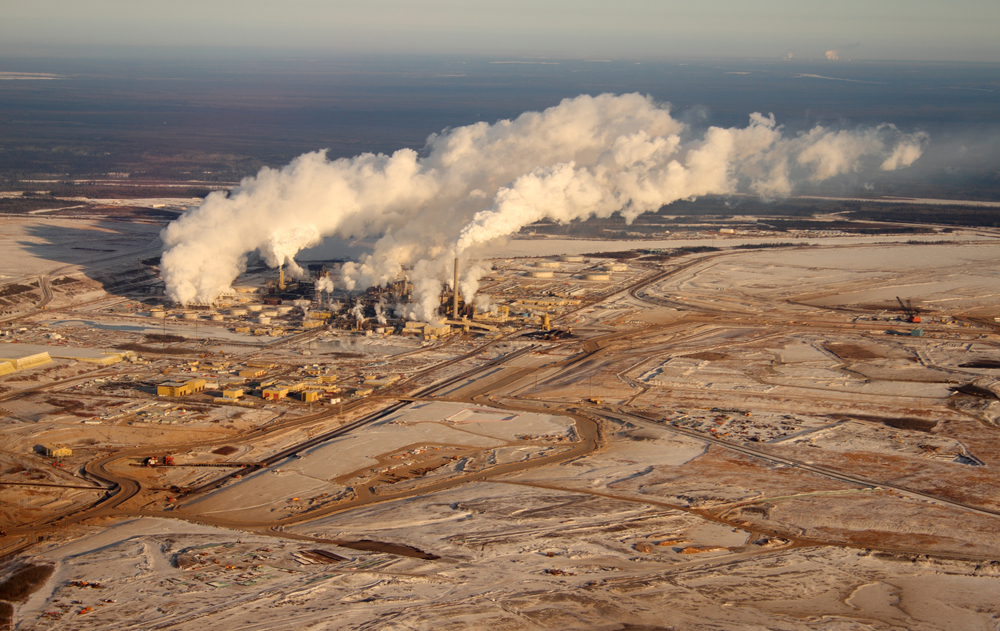An Alberta organization that spreads government propaganda about the oil and gas industry has hired a U.S. crisis management firm whose stated mission is to defend against “predatory” journalists.
CounterPoint Strategies was contracted by the Canadian Energy Centre, also known as Alberta’s Energy War Room, to “provide strategic advice and assistance with social media and digital communications relating to U.S. energy issues,” according to documents registered in early May with the U.S. Department of Justice.
CounterPoint explains on its website that it works with “clients that are being threatened in the public discourse.” Its services are necessary, because the “modern news media” is “hostile, aggressive and willing to disregard standards and collude with almost any antagonist.”
The firm advertises a “counter-adversarial strategy” for fighting back. “We can stop hostile coverage in its tracks,” it says.
“This may be a response to the fact that news media outside of Alberta have been bringing more accountability to bear on the oilsands and the provincial government,” Sean Holman, an environmental and climate journalism professor at the University of Victoria, said of the Alberta contract with CounterPoint.
The Tyee reached out to the Canadian Energy Centre, which is funded by the Alberta government and has three provincial cabinet ministers on its board, to ask whether it shares CounterPoint’s perspective on journalism.
“There are a lot of good journalists doing very important work,” Tom Olsen, CEO and managing director of the Canadian Energy Centre, wrote to The Tyee in an email.
Olsen didn’t provide any further information about the contract with CounterPoint.
CounterPoint didn’t respond to a media request, and shortly after The Tyee reached out, it changed its website so that a page explaining its “ethos” and “strategy” is only accessible with a password. That page is still publicly accessible on an internet archive known as the Wayback Machine, however, and it describes a “compliant media” working directly with activist groups to “create self-sustaining controversy and inflict maximum damage to their subjects.”
“The activist-media co-operation is predatory, and these attackers count on weakness,” CounterPoint explains. “They assume that their targets are vulnerable and, if pressed, will either compromise or give in altogether.”
The president and CEO of CounterPoint, James Andrew McCarthy, is listed in this May’s foreign registration documents as someone who “renders services directly” for the Canadian Energy Centre. The centre was set up in 2019 by Alberta Premier Jason Kenney to counter “a campaign of lies” against the province’s oil and gas industry.
McCarthy founded CounterPoint in the 2000s and gained notoriety from media watchers for pioneering the practice of using Google ads to draw negative attention to specific journalists who wrote stories that his corporate clients didn’t like. “When you include their name in the search, it draws attention to it and lets the reporter know that you mean business and you’re going to hold them responsible,” he told Nieman Lab in 2009.
McCarthy subsequently created a short video which “portrays journalists as ravenous, predatory wolves who will literally tear your company apart, destroy its reputation and cause its stock to plummet,” according to a description in the Columbia Journalism Review. “The video’s thesis is blunt: Our current information landscape is a war zone, journalists are enemy combatants and unprepared companies are at risk.”
CounterPoint’s current website contains a similar message: “Competitive pressures and ideology are creating perverse incentives for journalists to cause harm — to market share, stock value, brand and reputation. And those incidents are happening with alarming frequency and drastic consequences.”
With addresses in New York and Washington, D.C., CounterPoint markets itself as “a unique communications agency specializing in crisis solutions, issue management, litigation PR and reputation defense,” one which works with “leading private equity firms, Dow-30 companies, private industrial firms and prominent public figures.”
It promises those clients, now including the Canadian Energy Centre, that it can “leverage digital ads, expose the ulterior motives of adversaries, rally specialized allies, discredit attacks.”
CounterPoint does so by doing things like closely tracking “all priority information affecting a client,” creating websites that can “dismantle print articles,” and threatening legal consequences before a story “is ever published or broadcast.”
All of this means that “opponents in the discourse are confronted with a choice — adhere to principles or face being discredited,” it explains.
In early June, a recently created Twitter account called “Matter of Fact CEC,” which is linked to the Canadian Energy Centre and focuses on the U.S., took aim at a Reuters story about Canada’s oil and gas industry.
Reuters had reported that Canadian banks were facing criticism for labelling some of the financing they made to fossil fuel companies as environmentally sustainable.
“Contrary to a recent article in Reuters, investments in Canadian oil and gas projects are a smart move for those concerned with sustainable finance,” the account tweeted. Olsen didn’t answer The Tyee’s question about whether this account is connected to CounterPoint.
In a more recent tweet from July 11, “Matter of Fact CEC” argued that “the media are eager to write obituaries for fossil fuels, but the global economy will still need oil and gas for decades, especially in emerging economies.”
That tweet currently has one “like.” ![]()
















Tyee Commenting Guidelines
Comments that violate guidelines risk being deleted, and violations may result in a temporary or permanent user ban. Maintain the spirit of good conversation to stay in the discussion.
*Please note The Tyee is not a forum for spreading misinformation about COVID-19, denying its existence or minimizing its risk to public health.
Do:
Do not: